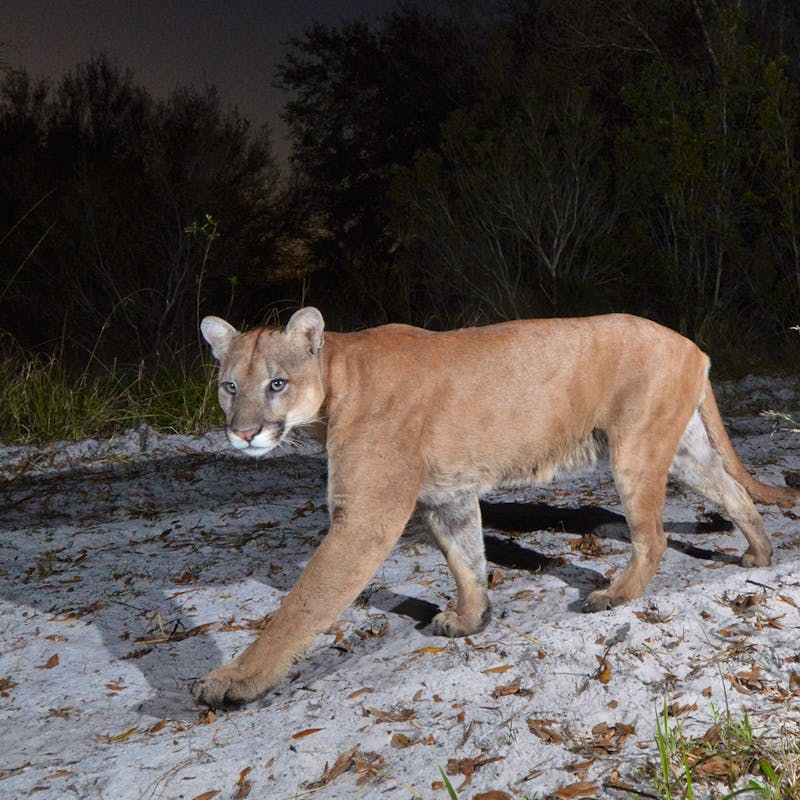
Defenders' former president and CEO, Jamie Rappaport Clark
This week, the National Journal’s Energy and Environment Experts Blog asked, “Who’s to blame for high gas prices?” Read what Defenders former president and CEO Jamie Rappaport Clark thinks Congress should do to redirect this country to a more sustainable energy future.
The phenomenon has become as reliable an indicator of spring as budding trees: gas prices go up just before peak summer driving season begins. Then, just as reliably, by Labor Day they’ve fallen again. According to 2012 Republican presidential candidates, the President of the United States has the ability to dictate these numbers at the pump. If only he had such power. But the reality is, as long as America is dependent on fossil fuels like oil, we’re at the mercy of those factors that influence the global market: Israel’s threatened war with Iran, the reduction in output from certain foreign producers, Wall Street speculators, Middle Eastern countries dominated by political unrest, and oil companies out to make a profit.
If the federal government is serious about redirecting this country to a more sustainable energy future, it should immediately eliminate the subsidies paid out to Big Oil–up to $4 billion each year. Instead of fattening the wallets of Big Oil CEOs, our government should be taking that money and investing it in clean energy solutions and higher fuel efficiency vehicles that will break our country’s dependence on foreign energy and dirty fossil fuels. Some in Congress are already taking steps to do just this. Sen. Robert Menendez (D-N.J.) recently introduced a measure that would end several tax benefits for major oil companies while extending a series of renewable energy tax breaks that have recently expired or are soon scheduled to do so. A vote on this forward-looking bill is expected in the coming days.
Instead of sacrificing America’s pristine lands and waters to profiteering oil companies, our leaders should be investing in long-term, clean energy and energy efficiency solutions that will end our dependence on dirty fossil fuels and break us from the cycle of rising gas prices forever.
Passing legislation to invest in clean energy solutions will not be easy. The 112th Congress has an ugly record of voting in favor of Big Oil profits over the public interest, slipping measures into draft legislation like the Transportation Bill that have oil executives licking their chops; measures that seek to open places like the Arctic National Wildlife Refuge or waters off Virginia’s coast to drilling. These efforts to sell off some of our most cherished public lands will do nothing to solve high gas prices this year, next year or for many years to follow, but they are great for oil profits and for the elected officials funded by Big Oil.

Drilling in the pristine Arctic National Wildlife Refuge will not solve our country's energy needs. Photo courtesy of USFWS
Instead of sacrificing America’s pristine lands and waters to profiteering oil companies, our leaders should be investing in long-term, clean energy and energy efficiency solutions that will end our dependence on dirty fossil fuels and break us from the cycle of rising gas prices forever. Building a renewable energy portfolio will take some time, but by eliminating Big Oil’s tax break giveaway and investing that money in clean energy solutions now, Congress can put us on the track to get there. Without a realistic plan to end our country’s addiction to oil, the Republican leadership’s promise to lower gas prices rings as hollow as an empty gas tank.
Learn more:
Stay tuned for how you can help Sen. Menendez pass his bill to end oil subsidies and propel America toward a clean energy future.





